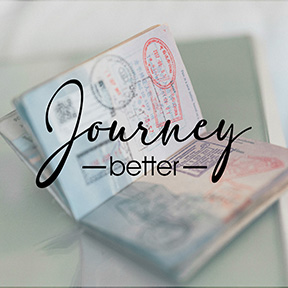
The more I travel the more I learn and improve what I am doing. So check back once in a while and see if I have learned something new.
Before you leave:
- Take a picture of your passport and save it to a cloud where you can access without your phone.
- Know where the nearest US embassy is located and their phone number. I always have this information before leaving and handy just in case. You never know when you might need to get in touch with them (ie. lost passport).
Packing:
What to pack in your carry on:
I learned this the hard way when our luggage was lost, never to be seen again.- Prescriptions, cash, memory cards, camera, dental appliances, anything that can not be replaced easily.
- Consider packing one set of clothing and a few essential toiletries in case your luggage is lost.
- Extras - safety pins, electrical tape, 2 USB cords, eye mask, bug spray.
Money:
- When using a credit card, always accept the charge in the local currency if your credit card does not have a foreign exchange fee.
- Using an atm card to pull out cash is usually cheaper than the exchange counter.
- There are many countries where the local banks will exchange money at a much better rate without additional fees. There are also places where there are government run exchange desks which are safer and again with much better rates.
- Never accept money that is torn, locals will not accept it. Always ask for smaller denominations leaving the airport, this will help with tipping. Unload coins as soon as possible; they are heavy and you will not be able to exchange them if you have left over money.
Phone service:
- If you do not have an international plan, it is most cost effective to get either a simms card while in country or an Esimms. If using an Esimms, make sure that your phone has the technology and is unlocked. It is best to check with your cell phone carrier.
- Set up a Whatsapp account before you leave and have it in place.
- Before you leave the airport on arrival, make sure you connect to the airport wifi and ensure that everything is up and running. If you leave the airport without service, you will have to wait until you find a wifi signal.
- How much data do you need? Well, that all depends on how you use your phone. For a 10 day trip, I generally use about 3GB on a 10 day trip, that includes web browsing for travel information, mapping directions, and going live on FB. When I make phone calls I will use the hotel/cafe wifi as this uses a lot of data. On the last trip I forgot and made a 1 hour video call and it used up about 1GB.
- I use the app Airalo
What NOT to bring:
You should not be bringing your entire purse from home. Seriously, do you really need the frequent buyer card from your supermarket? Do you need the keys to your other car? If it can not be use outside of your home area, don't bring it.A water filter, unless you are in the woods hiking or in the bush, bottled water is available everywhere.

